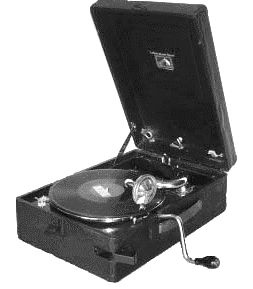Lossless, hi-res or fake
File formats like WAV, FLAC, ALAC, etc. are lossless by design.
However, this won’t tell you if the source is genuine.
Take a MP3 and decode it. This will yield a 2 channel, 16 bit, 44.1 kHz PCM audio file.
Decode this file to FLAC and you have a lossless format with a lossy content.
Likewise you can have a file with CD quality audio. Up-sample it to 24 bit / 96 kHz and you have you’re fake hi-res.
A common advice is to use spectrum analyzers to detect if the content is genuine or fake.
Eriksrtechcorner advice is to look at the cutoff frequencies.
11 kHz = 64 kbps
16 kHz = 128 kbps
19 kHz = 192 kbps
20 kHz = 320 kbps
Might help but I do have a lot of CD’s (acoustical recordings in ADD quality) ripped to lossless with a 16 kHz upper limit.
There are a couple of tools available to detect the difference between real and fake.
As much as we struggle to hear a difference between lossless and high bit rate MP3, likewise these tools fails.
There are no reliable techniques to discern high bit rate MP3 from lossless.
Spectrum analyzers are covered here.
AuCDtect
A free console program for determining the authenticity of musical CDs.
It claims "by evaluating the character of audio data a CD contains, it can distinguish between original studio-based recordings and those that have been "reconstructed" using a lossy audio source"
Lots of people struggle to detect any difference between CD quality and high bit rate MP3.
Programs like these are like us, at high bit rates they are completely at loss.
Lossless Audio Checker
According to the website:
Internet music dealers currently sell "CD-Quality" tracks, or even better ("Studio-Master"), thanks to lossless audio coding formats (FLAC, ALAC). However, a lossless format does not guarantee that the audio content is what it seems to be. The audio signal may have been upscaled (increasing the resolution), upsampled (increasing the sampling rate) or even transcoded from a lossy to a lossless format. Lossless Audio Checker analyzes lossless audio tracks and detects upscaling, upsampling and transcoding (only for AAC in this early version).
The AES paper I do think has an interesting approach on how to detect lossy.
The idea is as each codex has its specific characteristics, one must be able to detect this in the audio. At the present they implemented AAC only.
I tried a 1985 recording. As I ripped it to FLAC, I know it is lossless.


Its spectrogram shows very little musical live above 16 kHz.

Interesting approach but very much WIP I’m afraid.
As per 2024, the software is no longer availabe. https://losslessaudiochecker.com/ redirects you to some silly DSD promotion by Qobuz.
Fakin' The Funk?
Using the same files.

Fakin' The Funk correctly identifies them as lossless.


